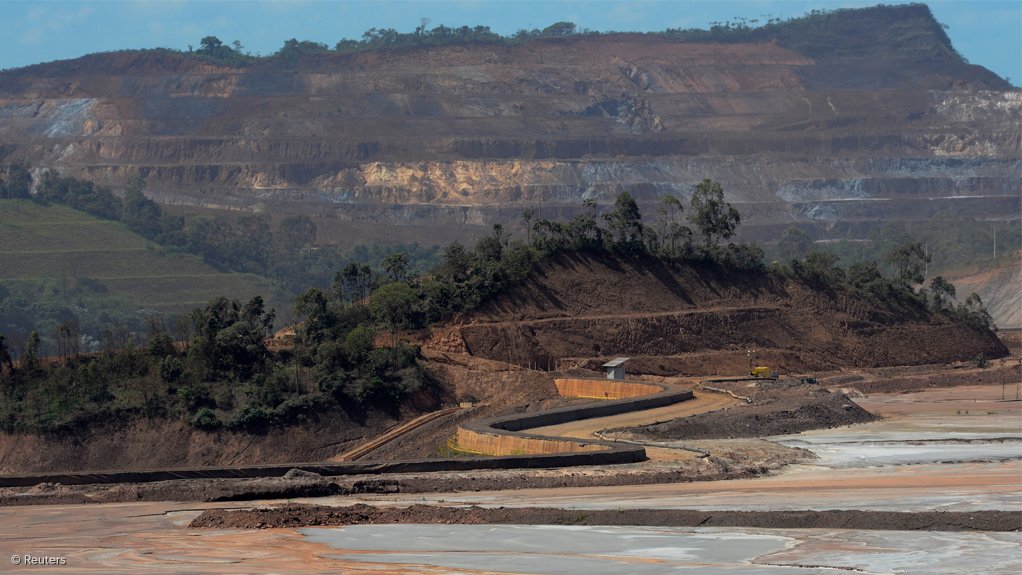SAO PAULO, Brazil – Brazilian miner Samarco is seeking a standstill agreement on about $1.6-billion in bank loans as its owners BHP Billiton and Vale refuse to cover debt payments, according to people with knowledge of the matter.
The iron-ore venture, whose operations were halted last year after a dam spill, is asking lenders to stop demanding repayment until it resumes mining, the people said, asking to remain anonymous because talks are private. Creditors negotiating with Samarco are pushing to at least receive interest payments on the debt, according to a person with direct knowledge of the talks.
BHP and Vale approved funding for cleanup and compensation programmes at Samarco and have extended credit to support Samarco’s operations. But the venture’s debt isn’t guaranteed by its owners, which don’t intend to make payments on the company’s behalf, the people said.
The press departments of Rio de Janeiro-based Vale, Melbourne-based BHP and Belo Horizonte-based Samarco Mineracao declined to comment.
A standstill with banks would be a first step in restructuring the debt as Samarco works on restarting operations. Seeking an agreement on new repayment terms while mining is suspended and not generating cash would be unrealistic, one of the people said.
After previously flagging a 2016 restart, the mine may not get new permits until late next year or 2018 amid regulatory scrutiny into an incident that killed as many as 19 people and was described by authorities as Brazil’s worst-ever environmental disaster.
Samarco hired JPMorgan Chase & Co to help it with bank restructuring talks, BHP hired Rothschild & Co, and Vale has Moelis & Co advising it, while banks holding the mine’s debt are working with FTI Consulting, people with knowledge told Bloomberg in June.
The mine was the world’s second-largest producer of iron-ore pellets before the spill, generating more than $2-billion in annual profit. It reported about 15-billion reais in debt ($4.8-billion) at the end of 2015 and 1.8-billion reais in cash. Its obligations include about 328-million reais of payments this year and 324-million reais in 2017, the company said.
Most debt is held with international creditors, but guarantees were provided by local lenders including Banco Bradesco, Banco Votorantim and Itau Unibanco Holding.
While its dollar-denominated bonds don’t start maturing until 2022, coupon payments are scheduled for as early as September. The notes fell to 36.2 c on the dollar at 12:27 pm in New York, down from about 60 c in early May as hopes faded for a swift resumption of operations.
In July, Moody’s cut its rating on the securities to C, the lowest rating typically used to indicate default or little prospect of an investor recovering principal or interest. The bond-rating company cited concern about the joint venture’s diminishing cash position and its inability to obtain the required licences.
Edited by: Creamer Media Reporter
EMAIL THIS ARTICLE SAVE THIS ARTICLE
To subscribe email subscriptions@creamermedia.co.za or click here
To advertise email advertising@creamermedia.co.za or click here













